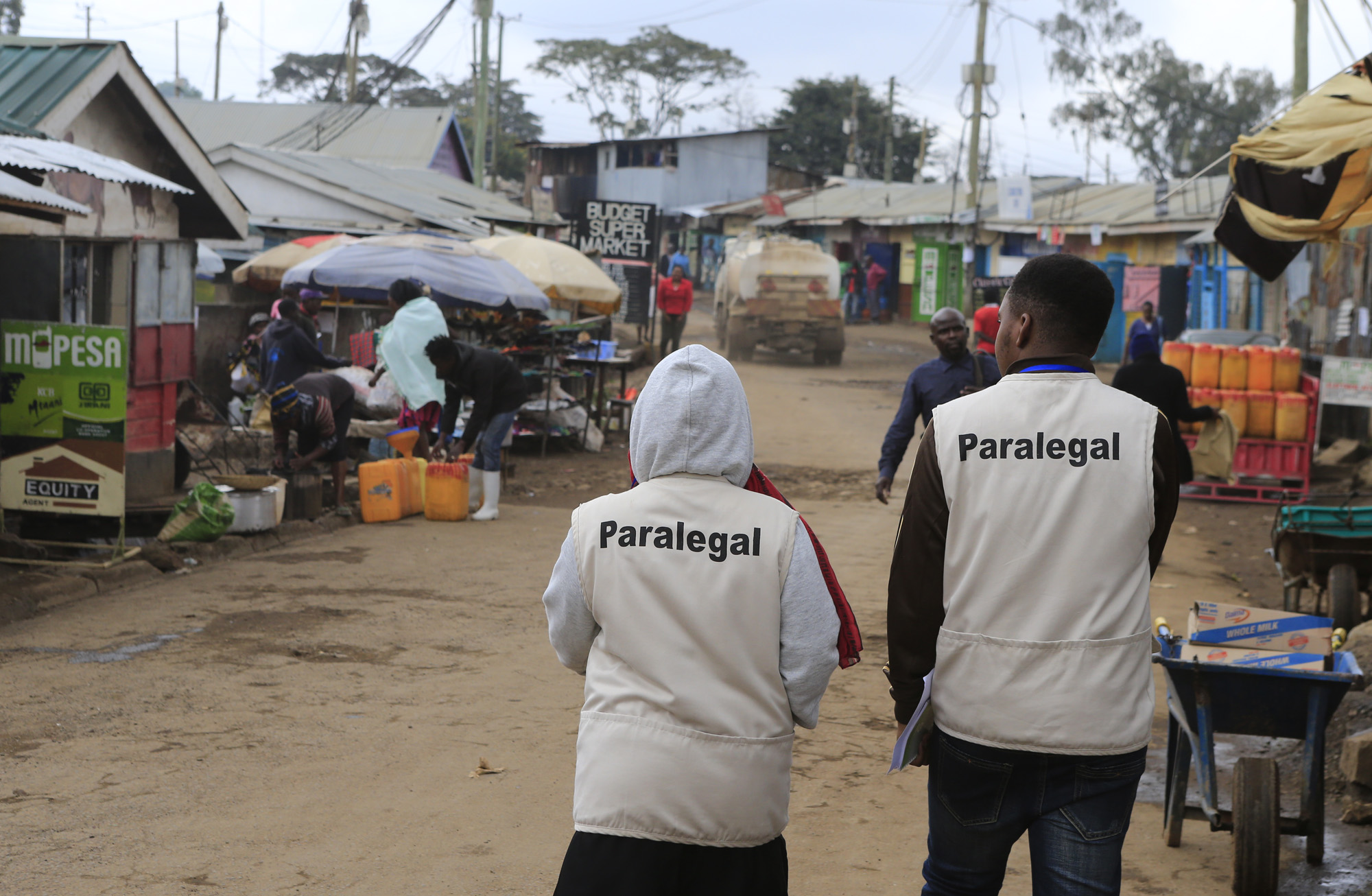
On April 1, the High Court of Kenya heard arguments challenging the legality of the National Integrated Identity Management System (NIIMS), popularly known as Huduma Namba, and demands to delay the rollout of the controversial system. This is after waves of pressure from civil society organizations, including our partners at Nubian Rights Forum and Haki Center, who contend that the system violates the right to privacy, equality, and non-discrimination enshrined in Kenya’s constitution.
In its ruling on applications for interim orders, the High Court did not prevent the launch of NIIMS, but did restrict several key provisions of the system, including that the government cannot:
This partial victory remains temporary, as the court will hear further arguments after the next court date on April 30.
Before the case proceeds, we call on the government to hear the real concerns of citizens who don’t want to choose between digital ID and their rights, and to design a system built on public input with justice as its core.
Background
The stated intention of NIIMS is to create and operate a national population register as a single source of information about citizens and foreign residents.
Under the Act, the government would have the authority to collect biometric data, including GPS locations of home addresses, DNA, and land registration numbers of citizens. It also merges several data registers including civil and transport registers that contain Kenyans’ personal information.
The law, however, is not clear on who is in charge of the data, what data can be accessed and by whom, or on the role of citizens in giving consent on the data that will be shared. Without a data protection act in place, citizen data is impermissibly exposed to breach.
Of further concern is the statement by the government that no one will access government services without a Huduma Namba. This will further entrench discrimination in the country, and further marginalize vulnerable minority groups, such as Kenyan Somali and Nubian communities, who already face discriminatory treatment when applying for identity documents and accessing their basic rights such as education, healthcare, and employment.
Our partners, the Nubian Rights Forum and Haki Center, along with the Kenyan Human Rights Commission, the Kenyan National Commission on Human Rights, the Law Society of Kenya, among others, have long argued that NIIMS would lead to less access to justice, not more, and that NIIMS was being rammed through without adequate public participation and input.
The Challenges Ahead
In our eyes, the interim ruling by the High Court is a win. The ruling protects Kenyans’ right to privacy, and the rights of those who are not comfortable registering for NIIMS until proper mechanisms are in place were protected. Marginalized communities who have issues of acquiring ID cards were secured as the timeline for registration was removed by the courts. Those who personally chose not to register or did not register due to lack of documentation shall not be compelled or be denied services on the grounds of not having a Huduma Namba.
This ruling is significant but has not stopped the government from attempting to pressure Kenyans to register under NIIMS.
Immigration Principal Secretary Gordon Kihalangwa declared on television that “If you are not in the NIIMS and you are actually applying for a passport, then we’d know very well that you are not a Kenyan, because that will be the single source of truth.”
Other key allies to the president have made statements that ATMs will soon be inaccessible without a Huduma Namba. These distortions are damaging, and coercion, fear, and outright lies are being used to pressure citizens to register.
Going Forward
In the face of this pressure campaign, legal empowerment efforts will be valuable to support communities to understand the state of the law and their rights.
The experience of community paralegals was key to informing actions on this case. Discrimination is already built into the administration of identity documents nationwide, particularly if you are from a minority group such as the Nubian community. By working on the frontlines and directly with communities, the paralegals Namati partners with have supported over 10,000 people to get identity documents. Experience gained from these cases helped inform the perspectives of the risks embedded in NIIMS.
Paralegal efforts will be particularly vital in the weeks ahead.
Community paralegals from Nubian Rights Forum are already holding sensitization community forums to update communities on the case, mobilize awareness and advocacy efforts, monitor violations of the law particularly within vulnerable groups, and help communities understand how they can get involved, including attending court proceedings.
The whole point of legal empowerment is to ensure a chance to live life with agency, freedom, and dignity. This is what a digital ID system should also be offering, but instead, the system is steeped in discrimination. To ensure a just transition to digital ID, the government must abide by the ruling of the court, hear the real concerns of its citizens, and design a system that will eliminate discrimination, not embed it further into the country.